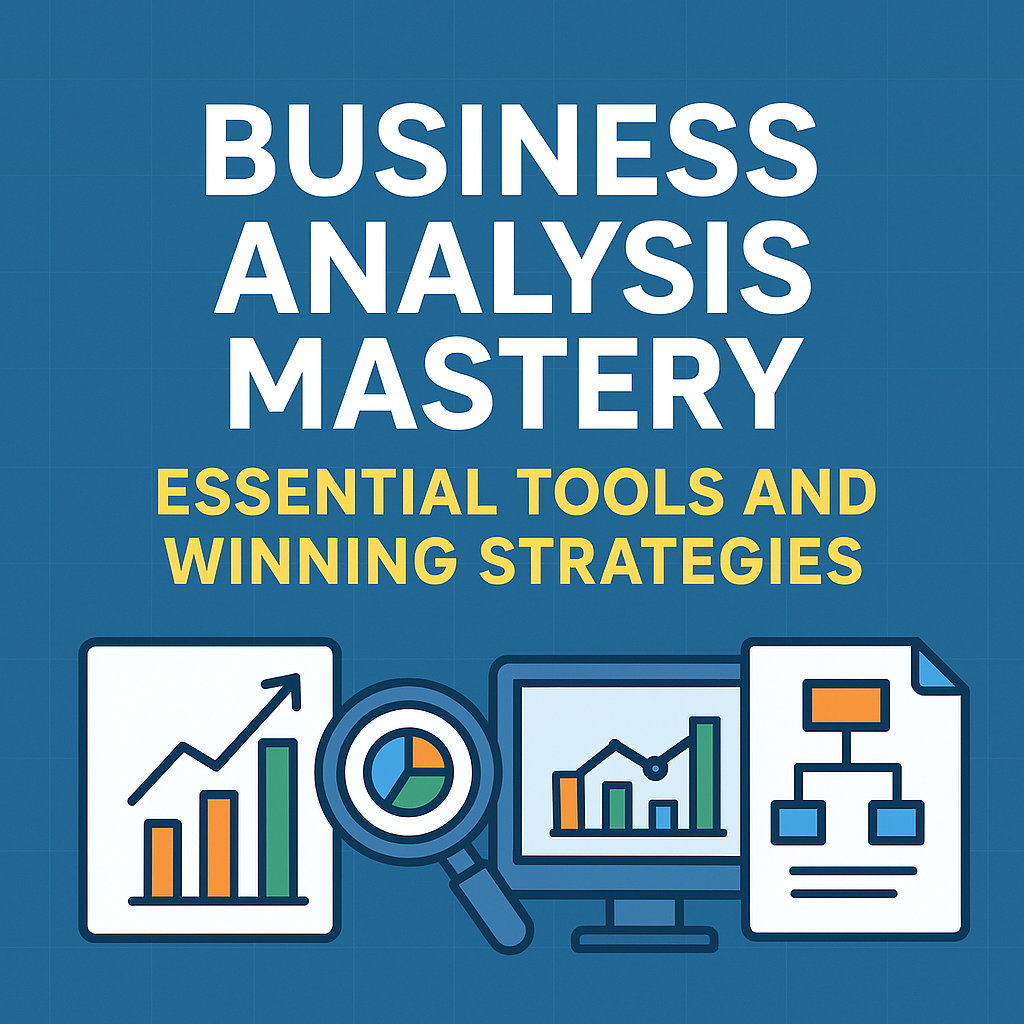In today’s fast-paced business world, business analysis has become the cornerstone of strategic decision-making. Organizations rely on skilled business analysts to identify opportunities, solve complex problems, and drive continuous improvement. Whether you’re an aspiring analyst or an experienced professional, mastering business analysis tools and strategies is the key to achieving long-term success.
Read More: Business Analysis Mastery: Essential Tools and Winning Strategies
What Is Business Analysis and Why It Matters
Business analysis is the process of identifying business needs, defining solutions, and ensuring that those solutions deliver value. It bridges the gap between stakeholders and technical teams, ensuring that business goals align with project outcomes.
A proficient business analyst doesn’t just gather requirements—they interpret data, foresee challenges, and propose actionable strategies. In a world where data drives every decision, business analysis mastery can help organizations increase efficiency, reduce costs, and stay competitive.
Essential Tools Every Business Analyst Should Know
To excel as a business analyst, you need to leverage the right tools. These tools streamline data collection, process modeling, and communication—helping you make informed decisions faster.
1. Microsoft Excel & Google Sheets
These classic tools remain vital for data analysis, visualization, and creating financial models. Their flexibility allows analysts to filter data, identify trends, and perform what-if analysis with ease.
2. Jira and Confluence
For Agile environments, Jira and Confluence are must-haves. Jira helps manage user stories, sprints, and backlogs, while Confluence provides a space for documentation, collaboration, and stakeholder alignment.
3. Tableau and Power BI
Data visualization tools like Tableau and Power BI turn raw data into interactive dashboards and insights. Business analysts use these platforms to communicate trends, KPIs, and performance metrics in a visually compelling way.
4. Lucidchart and Microsoft Visio
Process modeling is crucial for understanding workflows and identifying inefficiencies. Lucidchart and Visio allow analysts to create flowcharts, UML diagrams, and process maps that clarify complex systems.
5. SQL
A foundational skill for data-driven analysis, SQL (Structured Query Language) enables analysts to extract and manipulate data directly from databases. Understanding SQL helps analysts validate data accuracy and generate precise reports.
Winning Strategies for Business Analysis Success
Having the right tools is only half the equation. To truly master business analysis, you need to apply effective strategies that enhance collaboration, clarity, and impact.
1. Focus on Stakeholder Engagement
The success of any analysis depends on how well you communicate with stakeholders. Active listening, empathy, and asking the right questions ensure that you understand business needs clearly and prevent costly misunderstandings later.
2. Embrace Data-Driven Decision Making
Today’s business world thrives on data. Use analytics to validate assumptions, identify patterns, and measure success. Data-backed insights give your recommendations credibility and precision.
3. Apply Agile and Lean Principles
Adopting Agile and Lean methodologies allows you to deliver value faster and adapt to change effectively. Break projects into smaller, manageable iterations and continuously refine your approach based on feedback.
4. Document Everything Clearly
Good documentation ensures transparency and continuity. Whether you’re writing business requirement documents (BRDs), user stories, or process maps, clarity and structure are essential.
5. Commit to Continuous Learning
The tools and methodologies in business analysis evolve rapidly. Stay ahead by attending workshops, pursuing certifications (like CBAP or PMI-PBA), and exploring new technologies that enhance your analytical capabilities.
The Future of Business Analysis
The future of business analysis is deeply tied to digital transformation and artificial intelligence. Business analysts are now expected to understand automation, predictive analytics, and AI-driven insights. Those who can blend traditional analysis skills with new technology will lead the next wave of innovation.
Visit Here: https://www.fusion-institute.com/mastering-business-analysis-game-changing-tools-&-strategies
Final Thoughts
Mastering business analysis isn’t just about using the right tools—it’s about adopting a mindset of curiosity, problem-solving, and continuous improvement. With the right combination of analytical tools and winning strategies, business analysts can become invaluable assets who turn data into direction and vision into measurable success.



